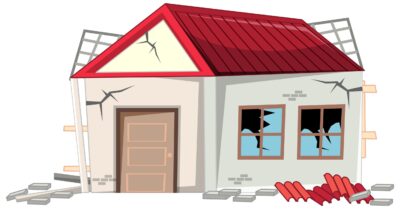Dealing with accidents is difficult, especially ones that either damage or destroy property. Whether it’s damage to your car or to your house, knowing what to do is crucial.
Acting immediately will help you minimize the consequences of what happened and ensure you get fair compensation for your loss. You should first start by noting the damage and contacting your insurance agent. Acting fast not only protects your rights but also helps prevent things from becoming worse. Keep reading to learn more about what to do in such situations.
Understanding Who is Liable in Property Damage Claims
One of the most crucial things to do is to determine liability in property damage claims. Before you can decide what to do, you have to determine who caused the damage. If someone else was at fault, their insurance might cover the replacement or repair of the damaged property.
Should you find yourself partially responsible, though, the claim could get more complex. Clear records and evidence of the accident will enable you to identify the liable party and ensure you receive just compensation. Knowing who is liable helps you know what to do to recover your losses.
Steps to Take After an Incident Involving Property Damage
Should your property be damaged or destroyed, you must follow some steps to ensure your safety and ensure a seamless claims process. Following the steps below will help you obtain the information required to file a claim.
- Document the Damage: Take clear images and videos of the damage right away. Photograph all of the damaged areas or objects from several angles.
- File a Police Report (if necessary): For events like vehicle accidents, you must involve the police. A police report is an official proof document that can be used during the claims process.
- Tell your Insurance Company About It: Tell your insurance company about it. Provide them all the information they need—proof of the damage, police reports, details on what happened, etc.
- Get Repair Estimates: Get estimates from licensed experts on the cost of repairing or replacing your damaged property to help you plan. Getting a few quotes from several companies will ensure you get a reasonable price, even if your insurance company lists preferred vendors.
Reaching Out to the Liable Party’s Insurance Company
Should the liable person’s insurance company cover the damage, you might have to submit a claim with them. In this situation, the process might involve back-and-forth negotiations, particularly in cases of differences regarding the degree of liability or damage.
Nevertheless, remain persistent. Make sure your case is supported by plenty of evidence. Should negotiations fail, you may have to consult a lawyer, particularly in cases of significant damage or dispute regarding who bears responsibility.
Tips for Managing Denied Claims
Your insurance company may refuse to pay a claim or provide compensation that doesn’t cover the whole cost of damages. If this happens, you are entitled to appeal the ruling. Review the grounds behind your denial of your claim first, then fill in any void in your claim.
Getting opinions from professionals or gathering additional evidence will help you to strengthen your argument. Should the insurance company keep rejecting your claim, you might be able to recover your losses by taking the matter to court.
Getting Ready to Repair or Replace Damaged Property
You can have repairs or replacements done once your claim is approved. Here are some sensible considerations for this stage:
- Keep All Receipts: All the receipts that prove the replacement or repair of the damaged property should be carefully kept. These receipts provide documentation of the expenses you have made.
- Choose Reliable Contractors: If damage is to property like a house or car, hire licensed experts with a solid reputation to fix it. Poorly done repairs might cause more issues down the road.
- Temporary Living Arrangements: Should your house have suffered significant damage, you might have to look for temporary accommodation. Talk to your insurance company to find out if any of your policies pay for these expenses, as some will.












